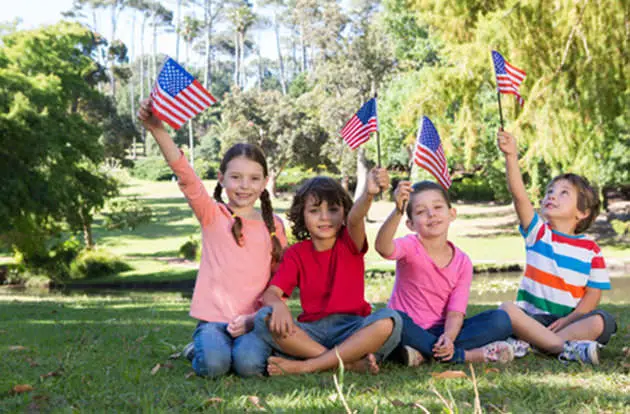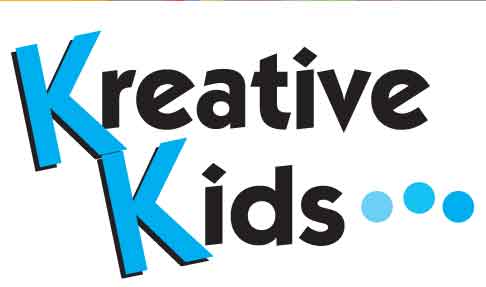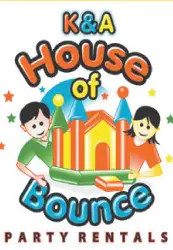Get the Best Winter Activities
Svensson says he grew up in a mostly nonpartisan household where his parents didn’t push him toward one party or another. “For all young people, that’s the ideal way to grow up, with an open mind to both parties and all ideas. I’m appreciative of that now,” he says. Now that he’s older, Svensson and his parents sometimes disagree on certain issues, but they’ve learned to avoid talking candidates and focus more on the issues of the moment—like government help for student loans. “The roles have reversed a little bit since I was a kid,” he says. “If they bring up an initiative that I have more knowledge about, I’ll fill them in. There’s never too much of a partisan tone to the conversations, though.”
While a nonpartisan approach may seem ideal, recent studies show that growing up in a bipartisan household may have its benefits, as well. According to a study published earlier this year in The Journal of Politics, “Those whose parents are divided politically tend to become more, not less, engaged in politics.” The study goes on to suggest that this effect might be the result of “proportional representation” in the household—or, in layman’s terms, the fact that two sides of an issue are represented equally in the home, sparking discussion and greater awareness and understanding of the issues.
Whether or not you’re dressing your little one in a “My Mama’s for Obama” or “Proud to Be a Republican” T-shirt, keep in mind that your kids are channeling your political views and using them to start forming their own (and/or repeating them to their peers on the playground—so play nice!).
Agreeing to Disagree
From the playground to the office Christmas party, your kids will undoubtedly run into others who don’t share their political opinions as they grow. And while heated debates are commonplace in the media, it’s important to teach kids to keep their political tempers under control. “We all have friends who vote differently than we do, so the important thing is to treat all people with respect and talk about how it’s okay to still be friends with people who see the political world differently,” Kelly advises. “If your family TV set is primarily set on Fox or MSNBC, that’s fine, but you need to explain that many of the reporters on each of these channels are advocating a political view and that it’s good to check what the other ‘side’ is saying. The same is true of newspapers. Those who follow the New York Times should check the editorial and op-ed pages of the Wall Street Journal some of the time.”
Snow agrees that teaching tolerance for other political views is hugely important for a child’s development. He suggests discussing issues in an impersonal way, so they’re not attached to or defining any one individual. “If you’re talking about same-sex marriage, oftentimes I think a 12- or 13-year-old will say ‘Well, what’s wrong with that?’ Instead of me saying there isn’t a good reason, I would consciously make the effort to explain there are people who interpret their religious scriptures to say this isn’t allowed,” Snow says. “You want to get her to think about it herself, not just say ‘That’s right because I say it’s right.’”
Tips for Parents
Following are a few more tips on how to make sure your child gets a well-rounded introduction to politics—and feels empowered to make her opinion count once she’s eligible to vote.
Vote. That age-old phrase, “kids learn by example,” is as true in the political realm as it is in other facets of life. As your child’s number-one role model, make sure you’re registered to vote and that you head to the polls regularly. Let your kids know when you’re going to vote and which candidate you’re casting your ballot for. If possible, bring your child with you so he can become familiar with the process.
Don’t talk politics, talk issues. “Politics can be boring for kids, and they may not have a frame of reference for it,” says Mary Jane McKittrick, author of the children’s book Election Day, part of the Boomer and Halley series. But issues, like whether the school year should be longer or why they take standardized tests at school, can be discussed easily because they are relevant to the children’s lives. Ask questions like “Do you think it’s fair that the rules are this way?” or “If you could make the rules, what would you do?” It will get them thinking and caring about democracy and their role in it.
Connect laws to their lives. Kids—like the rest of us—encounter government in action practically every day, McKittrick says. When there is road construction on the way to school, it represents tax dollars being spent to improve the community. When a new playground opens, or old equipment is replaced with new equipment, it can be traced back to the local government. When they see campaign signs all around during an election cycle, it’s another opportunity to explain what it’s all about.
Let them lead the way. Take advantage of the teachable moments that arise when your child starts asking questions. “The thing about kids is, if you start talking about something they haven’t asked about—if they don’t open up the conversation themselves—it turns into a sort of lecture and they’ll tune you out,” Snow says.
Learn with them. If your child asks questions to which you don’t have an answer, take time to look up the information together by surfing the web or doing a little research in the library. Capitalize on your kids’ natural curiosity to help them build a solid base of knowledge on how our political system works. Bonus: You’ll learn something, too!
Keep them connected. Encourage kids to keep up on current events by getting them a subscription to an age-appropriate magazine or website like Time for Kids or KidzTimez (kidztimez.com). They can also check out icivics.org, a nonprofit group founded by Supreme Court Justice Sandra Day O’Connor that teaches students civics through web-based games and other tools.
Show your support. When your child shows an interest in public service or a political group—even if it’s not totally in line with your own views—make sure you back her up. “If your child wants to run for a position on student council or in a club, encourage her!” Kelly says.
Find politics boring? Imagine what your kids think. Check out our fascinating presidential trivia (example: which president had a pet alligator?) and get your kid engaged!
RELATED:
Protecting Kids from Negative Effects of Difficult Presidential Campaigns
Get Our Weekend Planner in Your Inbox







